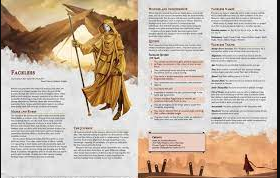
Faceless 5e (5th Edition)
Baldur’s gate represents the faceless historical past. We will explain more about this background of dnd in this article. You can examine it by checking out the below lines and gaining complete information about it.
5e Faceless
You should not act like a hero based on who you are. It could be due to your class, your culture, your family, or even your sins that prevent you from effectively pursuing the course that you have chosen.
Even though it doesn’t end your life. Of course, you have left your old face behind. You have taken on a new persona, and you have become something more.
The majority of your fellow adventurers and the rest of the world understand you as your persona. Your disguise stymies those who wish to learn more about you-your strengths, your origins, your purpose. You become unrecognizable as your actual self when you don a hide and act like your persona. Your persona is no longer identifiable once you remove your cover and reveal your true face. You can switch between your two personalities as often as you like, hiding differences or serving as camouflage with one of them. When someone understands how your persona and real self are connected, your deception may lose its effectiveness.
Deception, intimidation are skills you possess
Disguise Kit: Tool proficiency
You may choose any one of the following languages
A faceless dnd 5e essentially plays their role-the hero or a great person they are every day. All of that is a facade, however, or else a phase of them expressing themselves to the extreme. When you define a persona, choose the traits from the various d&d backgrounds, especially the hero, hermit, and noble backgrounds.
Faceless personalities generally perform their persona – the hero or notable character they are every day. However, that’s just an expression of their phase to the extreme, or a facade. To develop a persona, feel free to use traits from different backgrounds, such as heroes, hermits, or nobles. In consideration of a powerful set of faceless characteristics, the individual behind the persona reflects on the consideration of an awesome personality without a face. As a result, those with this heritage have two kinds of characteristics: a personality and a faceless self.
Personality Traits
The Faceless Traits of D8
I am earnest and unusually direct.
The result of having no personality is that what’s barely there is easier to forget.
The person or event that set me on my path is memorialized in a memento.
In addition to sleeping as much as I need to, I have an unusual sleep schedule.
Often mistaken for daydreaming, I think far ahead.
The hobby or study I cultivate is obscure and I eagerly discuss it in length.
I’m always learning when to stay quiet and when to laugh among others.
My behavior is the opposite of my persona.
Ideals
Ideals without faces, D6
A person’s place in society should not determine his or her access to justice. (Good)
Secondly, do what must be done without harming the innocent. (Lawful)
The weapon of confusion is deception. Strike from a surprise angle. (Chaotic)
Infamy: My name will be a curse, a curse which fulfills my will. (Evil)
Be an example of incorruptibility, and let your flawed self be forgotten. (Any)
Anonymity: I should be remembered for my deeds, not their instruments. (Any)
Bond
Faceless Bonds D6
I do everything I can for my family. First concern is keeping them safe.
My actions are for the benefit of the world. Actions are not realized by the people.
I have seen too many in need. They deserve better than me.
Rather than let the wicked go unopposed, I stand in opposition.
Five things make me exceptional. It’s the only thing I can do, and it’s the only thing I can stop.
In honor of those who have been taken from me, I do everything I can.
Read also:



